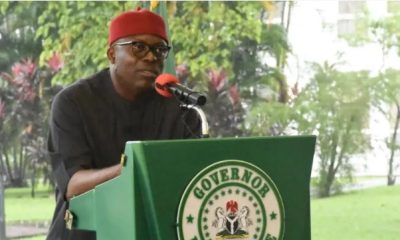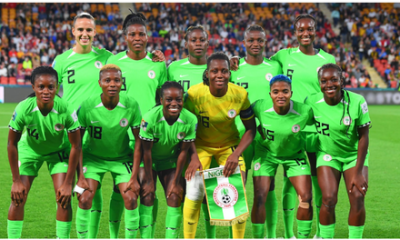Business
Naira depreciates by 1.92% against dollar at official market

Business
1 out of 4 Nigerians want to migrate-NBS
Business
FG, World Bank to provide jobs for 10 million youths in 5 years
Business
Dangote Refinery Launches Fuel Export to West Africa
Business
Naira depreciates again by 2.3% against dollar at official market
Business
CBN to Nigerians: Beware of fraudulent contracts, project funding claims
Business
Nigeria will be in trouble if states collect VAT – Tinubu’s tax team
-

 News22 hours ago
News22 hours agoEfe Ajagba Poised to Challenge Daniel Dubois for IBF Heavyweight Title
-

 News18 hours ago
News18 hours agoSimon Ekpa to be extradited to Nigeria – Defence
-

 News21 hours ago
News21 hours agoFederal High Court Adjourns Labour Party’s Suit on Rivers Lawmakers’ Defection to January 2025
-

 News20 hours ago
News20 hours agoHP Wolf Security Launches Advanced Physical Cyberattack Protection for Business Introducing HP Enterprise Security
-

 Entertainment17 hours ago
Entertainment17 hours agoDavido Reflects on Life as He Turns 32: “My Eyes Don See Shege”
-

 Business18 hours ago
Business18 hours agoFG, World Bank to provide jobs for 10 million youths in 5 years
-

 News5 hours ago
News5 hours agoNEC sets up National Electrification Committee to end grid collapse
-

 Entertainment6 hours ago
Entertainment6 hours ago12 Secret Santa Gifts That Could Get You Fired
-

 Entertainment17 hours ago
Entertainment17 hours agoAfrican Music Takes Over Coachella 2025: Seun Kuti, Remain and More to Perform
-

 News7 hours ago
News7 hours agoNFF holds match commissioners’ seminar in Asaba






































